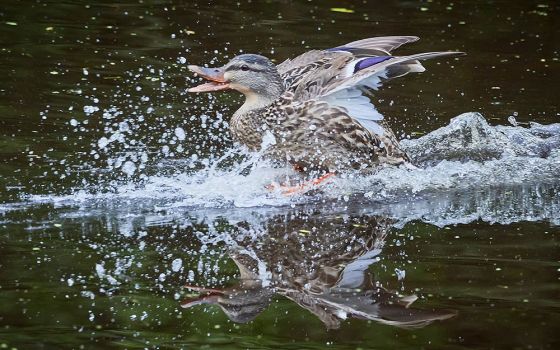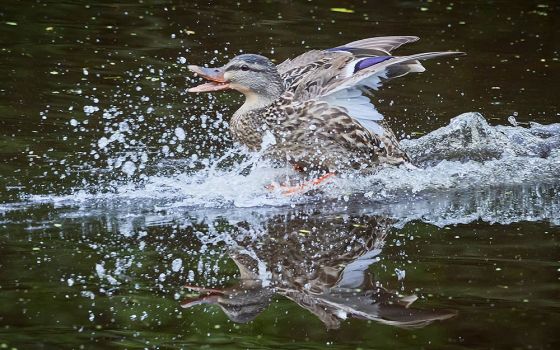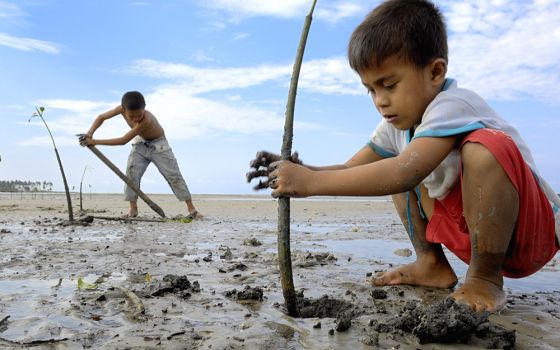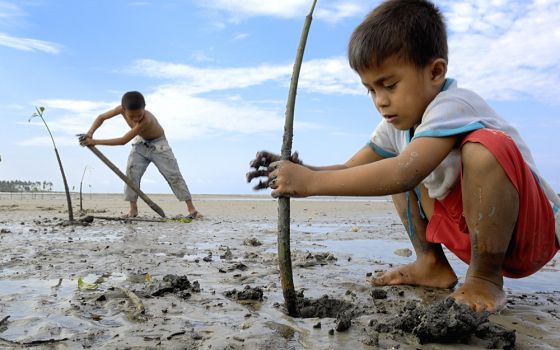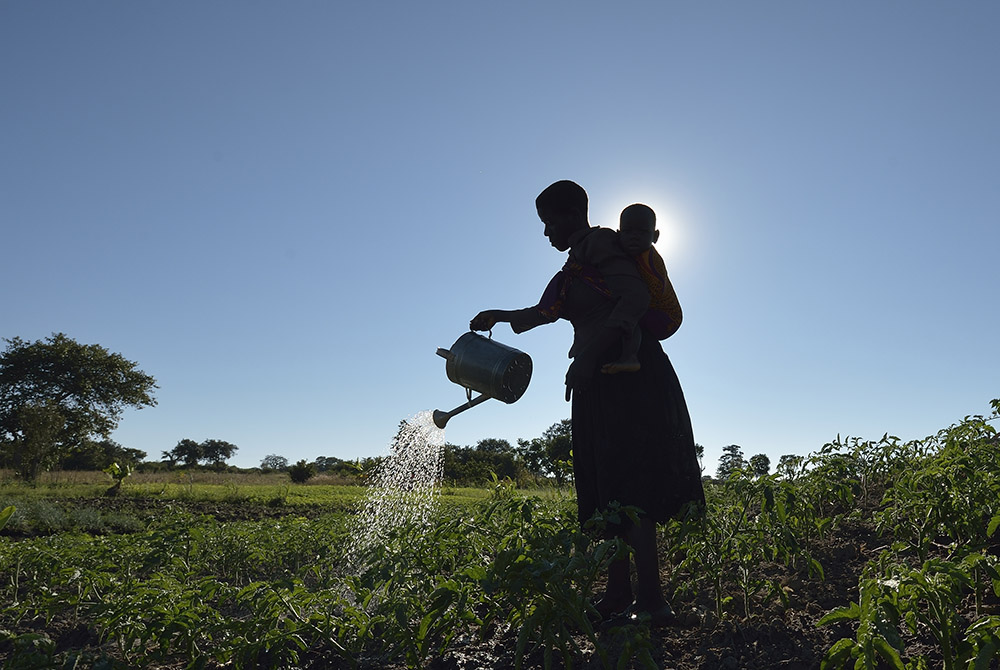
Rhoda Nyoni, her son Moses on her back, waters a community vegetable garden in Kayeleka Banda, Malawi. (Paul Jeffrey)
Editor's note: This Season of Creation, join award-winning photographer Paul Jeffrey for "Lens on Creation" as he examines the world through the lens of his camera and his faith. Sign up here to receive Jeffrey's reflections in your inbox every Monday, Wednesday and Friday from Aug. 31 to Oct. 4.
Creation is all about new life, over and over again. I see it in this image of Rhoda Nyoni, her son Moses on her back, watering a community vegetable garden in Kayeleka Banda, Malawi. Nyoni is pregnant, and a church-sponsored program works with her and other women in the village to ensure that they and their children receive proper nutrition and health care.
There is no way to separate caring for the planet from caring for the health and dignity of individual persons and families. Agriculture that is sustainable and environmentally sound contributes to the well-being of those who grow the food and those who consume it. If we truly seek to empower women and protect children, we must make personal, community and political commitments to work for a healthy world in which families can thrive.
The coronavirus pandemic has laid bare the inequalities in our societies and our own fragility. In doing so, it has underscored our interdependence with one another and with the Earth's ecosystems.
This Season of Creation is a time for renewal of our relationship with all of creation, a time for us to reflect on how we use the planet's finite resources, to pray for healing for ourselves and for the world, and to make a commitment to living more lightly upon the Earth.
Healing the planet isn't an elitist vocation that ignores issues of justice and marginalization. Church teaching makes clear that it's one struggle. The broad concept of "climate justice" challenges us to incarnate in every community the abundance of life promised in the Gospels.
For reflection and action:
Pandemics like the current coronavirus outbreak occur when natural systems get out of balance, often because we are taking more than our share from nature or we are using it unwisely. Reflect on your consumption of something nature provides, such as wood, energy, meat, even chocolate. Where does it come from? Is it produced sustainably? How could changing your consumption patterns help heal the earth?
[Paul Jeffrey is a founder of Life on Earth Pictures and lives in Oregon. You can follow him on Instagram.]
Advertisement



